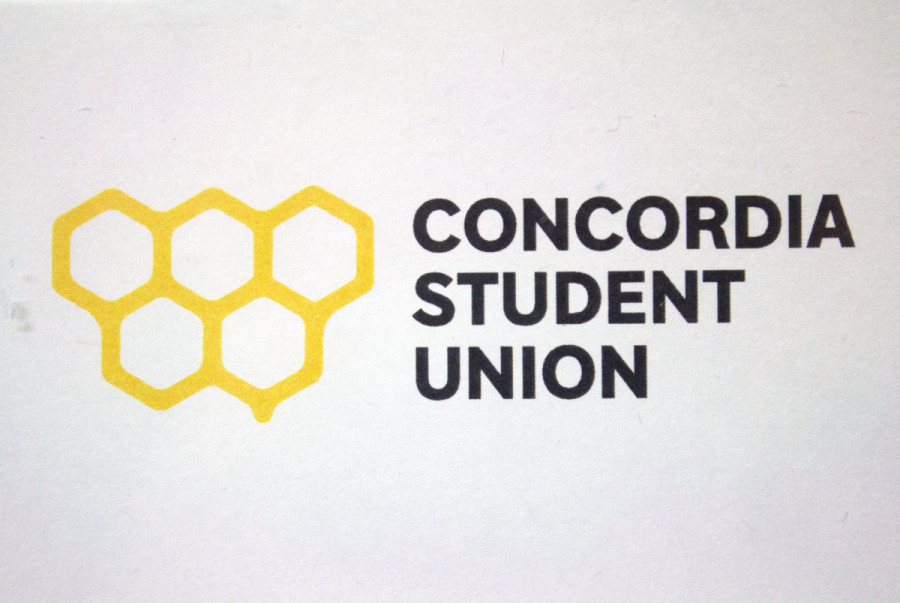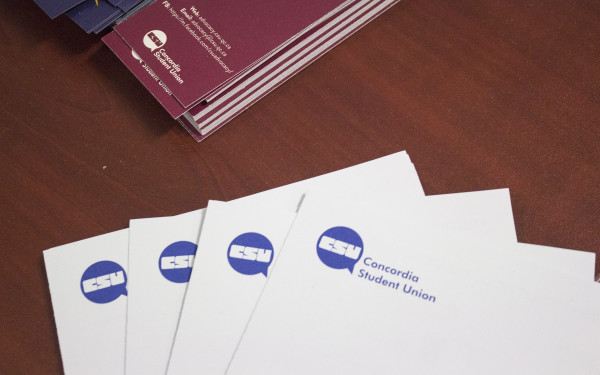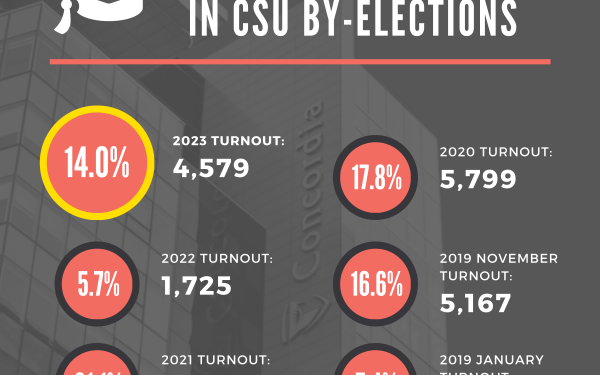CSU referendum question to add permanence to positions book
Controversy arises over student rights based positions being impermanent
In a Concordia Student Union meeting on Jan. 27, a referendum question was passed regarding the reversal of a previous referendum question about the CSU’s position book.
The positions book is a living document which lists the opinions of the CSU, which they are supposed to uphold and follow in their work.
In the 2020 winter semester, a referendum question was passed where all positions in the CSU positions book would be democratized. This means that every four years, the positions would have to be revoted on in a referendum. This also means that every position added before 2016 expired—resulting in positions regarding Indigenous rights, anti-racism, intersectional feminism, and many more student rights based positions expiring.
What followed was the fall 2020 election having 19 questions, leaving many students overwhelmed and confused, said CSU councillor Harrison Kirshner.
“The way that the referendum question was posed was not clear to students,” Kirshner said. He agreed with the referendum question during the winter 2020 referendum, but once he got involved with the CSU he realized the impact this would have.
Kirshner said the motion doesn’t prevent discriminatory positions from being passed, it just allows them to exist for four years.
S Shivaane, another CSU councillor who worked with Kirshner to reverse the referendum question, said the reason the new motion was proposed goes beyond voter confusion. This decision also impacts minority students at Concordia, she said.
“I just remember the one Person of Colour councillor in the room [saying they] would have to justify their existence and identity every four years,” Shivaane said. “We already have to do that on a daily basis, we don’t need to add another thing.”
“With this referendum question we have had to reaffirm our stances on issues that we know for a fact and shouldn't be up for grabs—issues like BIPOC representation and climate justice. [It] was quite disturbing to say the least,” Krishner added.
“If you look at Concordia at large there aren’t a lot of people who are marginalized who have the time to focus on student politics; they’re mostly focused on real world politics or their regular lives.” — S Shivaane
In the CSU meeting, councillor Hersh Filler argued the act of voting for a position is what grants them legitimacy—as it shows the administration that the student body is in agreement with said position. Shivaane argued that, instead, this wastes the little energy marginalized students have for student politics.
“If you look at Concordia at large there aren’t a lot of people who are marginalized who have the time to focus on student politics; they're mostly focused on real world politics or their regular lives,” she said. “The CSU has historically been very hostile to minorities, so making the argument that doing this will make it more legitimate doesn’t hold up.” Situations such as CSU members resigning due to a toxic work space or there being push back on including more diversity on council is not uncommon for the CSU.
The next step in the campaign, Shivaane explained, is for the policy committee to create categories that will dictate which positions will in some way need to be refreshed and which ones will stay permanent.
Some types of positions that have been discussed as being non-permanent are positions related to geopolitical issues. The CSU having a stance on a situation where there are students who belong to both sides of a conflict treds on defying safer place policies, Shivaane said.
Additionally, any position that Concordia is not involved in, such as the now removed CSU position which stated they were against assisted suicide, Shivaane said should not be permanent.
Kirshner argued that instead of always sending a position back to referendum, the policy committee should establish a system that would allow the CSU to make small adjustments when necessary.
“We had a position that referred to 2012 [...] so maybe we could change the wording on that position to adapt it to the present without necessarily sending it back to referendum,” he said.
While the process is undergoing, Kirshner said it could take a couple of years before a new classification system is established that allows for modifications to be made.
In March, students can vote whether or not to pass this motion in the referendum.







